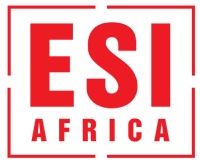African power utilities united on Africa Single Electricity Market vision
Planned to be operational by 2040, AfSEM aims to connect Africa’s five regional power pools into one harmonised market
Representatives from power utilities across Africa gathered in Egypt recently, where the blueprint for the Africa Single Electricity Market was brought into sharp relief as the concept of translating policy frameworks into real connections was discussed.
At the recently concluded 21st Congress of the Association of Power Utilities of Africa (APUA) held in Cairo, Egypt, delegates convened to address critical challenges shaping the continent’s energy landscape – from energy transition, utility reforms and governance to sustainability and the role of public-private partnerships in driving the power sector forward.
One of the key topics under the spotlight was the Africa Single Electricity Market (AfSEM), described as a “blueprint” to enable seamless cross-border electricity trade across the continent.
Planned to be operational by 2040, AfSEM aims to connect Africa’s five regional power pools through a Continental Master Plan (CMP) that will facilitate the integration of national power systems into one harmonised market.
Africa Single Electricity Market aligns with Agenda 2063
Developed in line with the African Union’s Agenda 2063, AfSEM was prepared with the support of the European Union and validated by Africa’s Regional Economic Communities, regional power pools and pan-African energy institutions. The framework was endorsed by the African Union Commission and officially adopted by AU Heads of State and Government in February 2021.
“Between 2030 and 2040, we need to begin connecting power pools,” said Abel Didier Tella, Director General of APUA, highlighting the urgency of translating policy frameworks into tangible interconnections.
Echoing this momentum, Stephen Dihwa, Executive Director of the Southern African Power Pool (SAPP), described AfSEM as a powerful lever to enhance the performance and integration of Africa’s power markets. “Tanzania and Zambia will soon be connected,” he said. “This is progress towards African markets being connected and trading electrons with one another.”
Dihwa added that discussions among power pools are ongoing to ensure operational alignment and smooth integration once the continental market becomes active.
From a financing and governance standpoint, Henry Paul Batchi, Director of Power Systems at the African Development Bank (AfDB), outlined three key factors for AfSEM’s success:
- Transparency between regions to build mutual trust.
- Mobilisation of funds to support large-scale interconnections.
- Alignment of policies with climate and sustainability goals.
-
Continental Master Plan: Building the Foundation for Integration
Providing an update on the Continental Master Plan (CMP) – the technical backbone of AfSEM –Shehu Ibrahim Khaleel, AfSEM Coordinator, emphasised its role in shaping Africa’s energy integration. The CMP:
- Serves as the technical foundation of AfSEM.
- Coordinates generation, transmission and demand modelling across the continent.
- Identifies priority investment corridors, such as cross-border interconnectors.
- Supports policy harmonisation and system resilience.
- Enables intra- and intercontinental electricity trade.
-
Khaleel shared that over the past 12 months, Phase III of the CMP has been completed and validated, resulting in a fully harmonised continental investment blueprint. This phase integrates generation and transmission priority projects across all five regional power pools – marking a major shift from fragmented national planning to a coordinated continental power system.
According to Khaleel, well-defined inter-regional interconnectors are projected to deliver $136 billion in annual trade by 2040, underscoring the vast economic potential of a unified African energy market.
-
Looking ahead, AfSEM will undertake pre-feasibility studies for country-level interconnections and assess the legal and regulatory frameworks of target states. The aim, Khaleel said, is to propose necessary modifications to facilitate electricity exchange and achieve regional and continental harmonisation.
-
With the groundwork for AfSEM steadily advancing, the discussions at APUA’s 21st Congress reaffirmed the shared vision of an interconnected, efficient and sustainable African power system that can transform how electricity is generated, shared and consumed across the continent. ESI
Cover photo: zaihan©123rf



